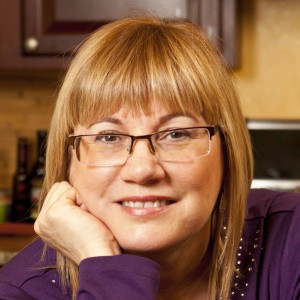Buddha said, “My actions are my only true belongings: I cannot escape their consequences. My actions are the ground on which I stand.”
When people use the word consequence it usually implies an action or inaction with a negative outcome. Most of our actions involve getting something we want or think, we need. Based on the fact that that we are bombarded with messages to buy, buy, buy for almost fifteen hours every day, we are not a culture that acts like we spend much time considering the consequences of our actions.
Where Do You Buy Your Food
Most of us don’t spend much time considering the impact of our food purchasing choices, but if more of us did, the beneficial consequences could be transformational. A 2007 Cornell University Study showed the average person makes around fifteen food related decisions a day. On a basic level we’re focused on finding foods to satisfy our hunger that are fast and easy to get. We don’t give much thought to the broader consequences of the food we eat.
What if we began shifting to the positive outcomes within our reach by making some small changes to way we shop for and think about food?
Where you source your food is probably one of the most important places to begin making a shift toward conscious consumption. You can begin generating positive consequences by considering the impact of what you are buying on not only your own health, but also on the local economy, your community’s resources and the planet.
Here are five questions to ask yourself before you buy:
Does the food product I am buying actually serve my body’s need for sustenance and health? Or, is it actually a fake food, junk food or processed food?
What are the long-term consequences of eating this food on my health? Is it grown without chemicals (organic); wild caught, lovingly pasture raised?
What is the impact on the people who grew or made this food? Could they have been exploited? Is this item sustainable; is it fair trade?
Will this purchase help support the local economy? If not, could you get something made/grown by a local business instead?
Could I make or grow this myself?
Consequences and Connection
The beneficial consequences of becoming more conscious consumers on the environment, local economy and our health are tremendous. But beyond these immediate impacts, something even more powerful starts to happen to us as a society.
One of the most profound consequences of shifting to conscious consumption is that we reconnect with the people who made the product. This affords us an opportunity to get a genuine understanding about the craft and care that was taken with that product. We come to respect the effort it took another person to makes this product so we can enjoy it. It’s impossible not to experience profound, personal satisfaction by growing or making something yourself. When I eat an organic tomato I grow myself or bake a crustless quiche made from organic, CSA-sourced eggs in my hand-thrown quiche pan, the food just tastes better. As a consequence I savor every bite. I feel more connected to Mother Earth. Both my body and spirit receive nourishment from the full circle I experience of farm to table.
Our Actions Are Our Only True Belongings
As we shift to conscious consumption our outlook on life changes. Our health improves. We learn to respect the gifts that Mother Nature provides. We learn to appreciate the talents and creativity of others. Our collective consciousness expands, and as a consequence of our actions, the world becomes a bit more connected.












